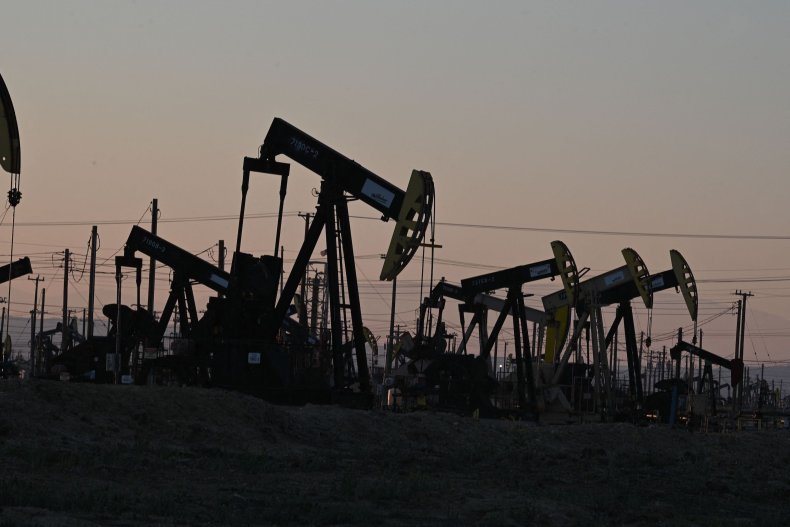To Fight Climate Change, Unleash American Innovation | Opinion

An unusually hot summer has led to equally feverish rhetoric from political leaders who should know better. Recently, on ABC‘s This Week, Washington Governor Jay Inslee stated, “what the scientific community is telling us now is that the Earth is screaming at us,” adding “the climate change bomb has gone off.” These remarks followed a speech by Joe Biden, in which the president declared “climate change is literally an existential threat to our nation and to the world.” What the world needs to address a changing climate is American innovation, not hysteria.
There is no question the climate is changing, just as there is no question that humans are in a better position to address that change than ever before. For tens of thousands of years our ancestors were at the whim of advancing and retreating glaciers and rising and falling seas, with little recourse but to flee to better climes when opportunity allowed. Today, however, technologically advanced societies have the ability not only to mitigate climate risk, but potentially to adjust the environment itself in ways favorable to human life.
The possibilities for managing climate risk are as limitless as the human imagination. Greenhouse gas emissions can be reduced by switching to less carbon-intensive energy sources such as nuclear power. Billions of dollars are being invested in small modular reactors, which can produce abundant power with a smaller footprint than existing nuclear plants. The transition to electric vehicles promises to reduce the use of carbon-intensive forms of energy as batteries become more efficient and less expensive. Efforts are underway to remove existing carbon dioxide from the atmosphere and store it underground. Recently scientists at the University of Massachusetts Amherst announced they had discovered a way to generate electricity from humidity.
These are just a few examples of the innovations underway to address climate change. American universities and private businesses are racing to develop ever more efficient means to produce clean, abundant American power. Just as in the past, when Americans managed to invent the airplane, land humans on the moon, and create the personal computer and the internet, there is every reason to be confident our country will once again rise to meet the challenges facing us using old-fashioned American can-do spirit and Yankee ingenuity. The only thing that can stop us is us.

Which is why sensationalistic statements like Inslee’s and Biden’s are unhelpful. Instead of promoting real solutions, pandering to interest groups takes us farther from achieving our goals. This is equally true of policies designed to score political points rather than address actual climate change. Take for instance efforts to force auto makers to stop making gas-powered vehicles before there is enough infrastructure to support a switch to electric cars. This policy may nominally reduce greenhouse gas emissions, but only by making it harder for Americans to get to work and school. Recent proposals to ban the use of natural gas stoves and water heaters almost certainly won’t noticeably reduce greenhouse gas emissions but will make it harder to cook dinner or take a warm shower.
To address climate change the world needs American leadership. Unfortunately, too many of our policies discourage innovation. For instance, increasing taxes on oil and gas drives up the cost of energy while doing little to reduce carbon emissions. The same is true of increasing regulatory costs on methane emissions from oil and gas wells. Lawsuits that block new pipeline projects from delivering critical energy supplies and bans on drilling on federal lands don’t reduce overall emissions, since the oil and gas will instead be imported, but they do make energy more expensive.
Energy costs drive production costs. More expensive energy means less innovation, and increasing the price of energy makes it more likely innovation will occur elsewhere, like China, where environmental standards are far more lax. To really reduce greenhouse gases America needs cheaper energy to spur new technologies. This means reducing legal barriers to building energy infrastructure, more drilling and mining on federal lands, and reducing regulatory costs for energy production.
Bad policies supported by inflamed rhetoric won’t help us deal with climate change. Addressing climate change effectively requires lowering American energy costs.
Gregory Zerzan is Chief Administrative Officer of enCore Energy Corp. Previously he served as Principal Deputy Solicitor of the U.S. Department of the Interior under President Trump and Acting Assistant Secretary of the U.S. Treasury under President Bush.
The views expressed in this article are the writer’s own.
